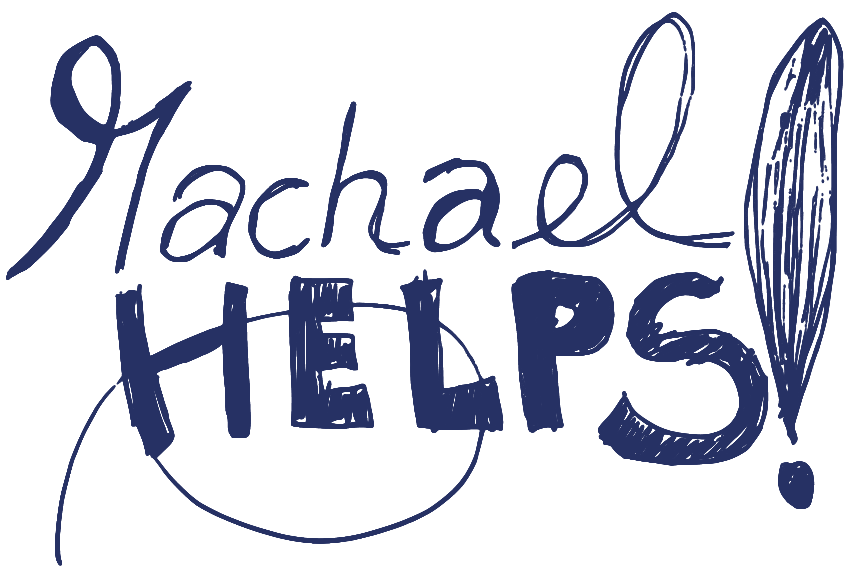7 Challenges I Wish Somebody Had Told Me When I Started My Business In France
Written by:Bonjour! I'm Rachael | 15 Jul 2019 in Life in France | 0 Commentaires ⤵️
A reader writes:
Hello Rachael,
Thank you for your amazing resources through your website and YouTube channel. My question to you is, what was the most difficult challenges you faced when starting a business while living abroad? How much money would you recommend a person to save before moving to Toulouse or Nantes, France? I look forward to hearing from you soon.
Answer:
2003 was the last time I would ever be an employee in France. I jumped from agencies to companies, to startups, just to get a pay increase. I worked long hours and even slept in an agency once (from 9 am to 6 pm the next day), due to the unrealistic deadline set up by a lack-of-experience saleswoman.
In France, some companies (well the ones I worked for) don’t pay you for the overtime. Not to mention, everything I worked on was a last minute RUSH, and some were very unorganized.
How stressful!
This is not what I experienced in the USA…
And after, my last full-time job was working for a promotional textile and bags company in Paris, as their in-house graphic & web designer.
I was DONE!
At that point, I had enough work experience, and I knew the cultural differences between French vs. American to branch out on my own. That year, I started my business Ardephwerk, a creative branding and digital strategy studio.
As an independent, self-employed consultant (solopreneur)––and entrepreneur who has started five businesses in France, I feel no matter what country you live in, I’ll say that every step in starting a business is scary and hard!
Think about it.
You need a solid business plan, out-of-the-box marketing plan, credibility, and ability to attract clients on a budget. Your service and products have to be continuously tested, evaluated, adjusted quickly, and you have to remain motivated when problems come along.
In the early stages, you are alone with no staff to delegate tasks to.
I even struggled with time management and organization, I vlogged about this in 2015 on my YouTube channel.
So, I’ll focus specifically on your two questions that I assume are related.
Here are 7 challenges I faced when I started my business and the money you will need in France.
1.) I worried about my future finances.
When you make the shift from an employee to an independent professional you’re moving into some unstable waters. You don’t have that every two week or monthly check coming in. I remember, I would worry about my future finances, like, “I have until 6 to 8 months, and man, I hope I will have a new project signed before that time comes.”
The stress is like a huge elephant on your shoulders, and it’s multiplied 10x when you live in another country.
In my beginning, I took a part-time weekend job to help ease my stress, until I was able to get my business off the ground. Financial insecurity is one of the highest causes of stress for expats, it’s no joke.
2.) Cross Cultural Selling (The French Style: Culture, Politics, Mentality and Lifestyle)
In retrospect, I probably should have started my business in Germany, because Germans are like Americans. I like to get straight down to business and save the small talk for later. I used to offer 30 mins free consultations but those 30 mins ran into an hour or two, just to get a French customer to sign on the dot.
I can be very blunt and to-the-point and that does not go over well with the French.
Politeness is of the utmost importance and direct selling or promoting your products/services can be seen as RUDE. French people like to get to know you first then after a couple of meetings (like 5 to 10), you can talk shop.
So, I had to learn how to go about this differently. One way I handled this was to create colunches via Linkedin. My idea behind this was to meet new people (business owners and entrepreneurs only) and discover a new restaurant during lunch, at the same time; it was an event that I hosted twice a month for an hour and a half. I put other people in the spotlight, where they could share what they do, and shine a light on my service as well. This was very effective for French business people and it also drew traffic to my website. In all you have to adjust to different business cultures and have the ability to recognize culturally based behaviors. Every region in France is culturally different, not to mention you need to speak their language as well.
3.) French Administration (navigating the local bureaucracy)
It’s scary to know that France bureaucracy is very confusing even for the French, so it’s not going to be any easier for you. Starting a business in the USA is so easy and you can do it overseas now with websites like Legal Zoom. France on the other hand will keep you jumping through hoops. First you need to know all the legal options for starting a business in France as a self-employed individual, incorporating a business or EI, EIRL, SA, SARL, Liberal, auto-entrepreneur etc..
Next, you’ll have to check whether the name you want to use for your company is already in use.
And do ALL this in French!
I guarantee you will come across new businessy, lawyery vocabulary that you never learned in language school nor heard on French Netflix.
And that is just the drop in the bucket!
4.) The French Accounting System
Once you jump through all the hurdles of setting up you business and you have your tax ID, you gotta put all your duck in a row by setting up an accounting system.
Easy peasy right?
Ah No.
Your business is in France so by law (article L 47A1 of the French book of tax procedures) you have to do a “fichier d’écriture comptable (FEC)” which could be translated into “computerised accounting French entries file”
Let me rephrase this in everyday language.
This means it is forbidden to use software that is not specifically designed to keep accounts in France.
It is therefore absolutely necessary to exclude Excel as well as Anglo-Saxon accounting solutions that would not provide the FEC. This obligation applies equally to the self-employed, which is my case, and not just companies. This is required by law and your accounting has to be in French. Failure to produce a fully compliant FEC file can result in a fine of either €5000 per audited year, or 10% of the amount reassessed by the French taxman, whichever figure is more. Let’s not forget the other French accounting, jargony balance sheets things, to keep up with as well:
- le bilan comptable
- le bilan financier
- le bilan fonctionnel
- le bilan prévisionnel
You would probably have to take a training class on how to properly fill these out.
I feel ya, after reading this you’re probably rolling your eyes while thinking “Dah.. WHAT! “
Don’t worry, I’ll point you in the right direction. I use QuickBook France. When you close a fiscal year in Quickbook France, an accounting record (FEC) file is automatically generated.
5.) Banking and Paying Taxes in the USA
Just because you live abroad does not mean you can put a pause on your taxes in the U.S.
Banking in non-U.S. countries is more difficult now with new U.S. laws to curtail money laundering and also to prevent tax evasion by keeping money overseas.
The Foreign Account Tax Compliance Act (FATCA) requires that U.S. citizens report financial assets that are held outside the U.S. So if you are working or self-employed in another country and you have a bank account there for local transactions, you must report these balances to the IRS. So you now have double tax papers to fill out.
I continually have to spend lots of time every year on my taxes in France and in the USA.
6.) Everything is taxed!
President Macron promised to make France “a start-up nation” by investing only in start-ups and small companies. For this reason, France has the most generous tax credit and government subsidies in Europe, making it the ideal place for startups and small companies.
But what about the self-employed? Us Solopreneurs?
Soon after your first two years in business, you start to feel the tax burden.
Everything is taxed.
When I started my company, I was registered as a profession libérale and my taxable income was at 50%. That’s a lot per project. I’ve recently changed to micro-entreprise to reduce my taxable income to 25% and that is still a lot; however better than 50%.
Oh yeah, have I forgotten to talk you about the lavish benefits system (social taxes)?
As my mother once said to me, “Shit Ain’t Free”. You pay for that too plus the social Charges, local taxes, property taxes, income tax, wealth tax and CET local business tax, but not the shit.
You have regional, departmental and commune taxes as well. That percent is different depending on where you live in France. You are even taxed for having a T.V, that’s why I don’t have one. I’m going through a quick list here and I think this article from Business Insider France sums it up, “France a has a system that pushes business towards bankruptcy and a black economy” .
It’s tough but I can never go back to being an employee.
7.) Trying To Do It All by Myself
For a couple of years, I tried to do everyTHING, by myself. So, you can get by for a while, but it eventually leads to burnout.
With all of the balls that you have to juggle as a solopreneur (independent professionals), it can be easy to overlook things. I learned the hard way that you can’t do everything, and even if you don’t have the budget you need to find a way. Booster shots of motivation, direction and delegation is the secret to success for entrepreneurs.
Keeping track of your finance is so important for your business growth. Investing in an accountant, a coach, a mentor is a small price to pay to reduce the time you spend on taxes, and putting that time toward getting new clients. It was a hard battle for me but I learned to say NO more to time wasters and to get help.
The Money You Will Need to Expand Internationally and Move YOU Abroad
First you need to have enough money saved to pay for the basic living and the expenses of running a business.
Living expenses should be: rent, food, clothes, electricity, heating, insurance for your apartment, health care, green cards fee (titre de séjour), maybe immigration lawyer fees, traveling to and from your country and French taxes. Yes, if you’re on a visitor visa the French government requires you to file a tax return.
That’s correct, on this type of visa you are not allowed to work for a French company and you still have to file a tax return despite the fact that you don’t owe any taxes according to French accounting laws.
2nd, you will have to do ground work. This is fairly easy to figure out you can create a spreadsheet or use Airtable, like I do, to track and categorise your living expenses.
For example: How much did you spend on food per day during your last trip to France?
Also you can look through local housing ads to see how much rent is, Google an immigration lawyer and ask for an estimate etc..
Next, for your business you have the start-up cost of filing for a legal status, insurance for your business, advertising, accountant fees, networking events, website hosting, brand collateral, brand photography, expat coaching, etc…
You get the picture.
Once you have created a spreadsheet (in Airtable), this will give you a ballpark number of expenses per year.
I wish I could say do like I did, “I moved to France in 1999, with 15,000 dollars in the bank.”
But the truth is time changes, in 1999 the currency was still in French Francs and the rate of exchange was so so good…
However, this is year 2018, 2019, 2020 (whatever year you’re reading this) the rate of exchange is CRAP. The euro is stronger than the dollar and the cost of living has risen.
Last, take a trip to France and keep all your receipts, document everything and that will give you an idea of how much money you will need.
Your Big Fat Take Away
I have lived through a lot of challenges and struggles in France. I love this country, the language and the lifestyle, and that’s why I’m still here. Every country has it challenges and I feel that France has made me a stronger person and created the writer in me. When I’m bored I just move to another city because I like re-discovering and starting all over.
There is a healthy balance of the good and bad in France, and hell the healthcare is the BOMB here.
So, I’ll leave you with some useful information that can further your reading:
- The Economist,
- BBC France Profile and timeline,
- Set-up your business online or at (Centre de Formalités des Entreprises or CFE)
I hope I have answered your questions.
And now I have some questions for you!
Are you a wannabe expat, and planning to start a business in France?
What difficult challenges have you faced in France ?
Share your experience (in French if you can) in the comments below.
#JustASK advice column, launched in 2002 on my YouTube channel, is written from an honest, direct and down-to-earth point of view. From navigating between different cultures, traveling, learning languages, getting your ducks in a row, to growing personally and professionally abroad.
Want to submit a question of your own?
Click here to submit your question. Also, I never, ever print names; all questions will be kept anonymous.
I look forward to reading your comments down below.
Talk to you soon,
Rachael HELPS!
✏️ Write a comment ⤵️


